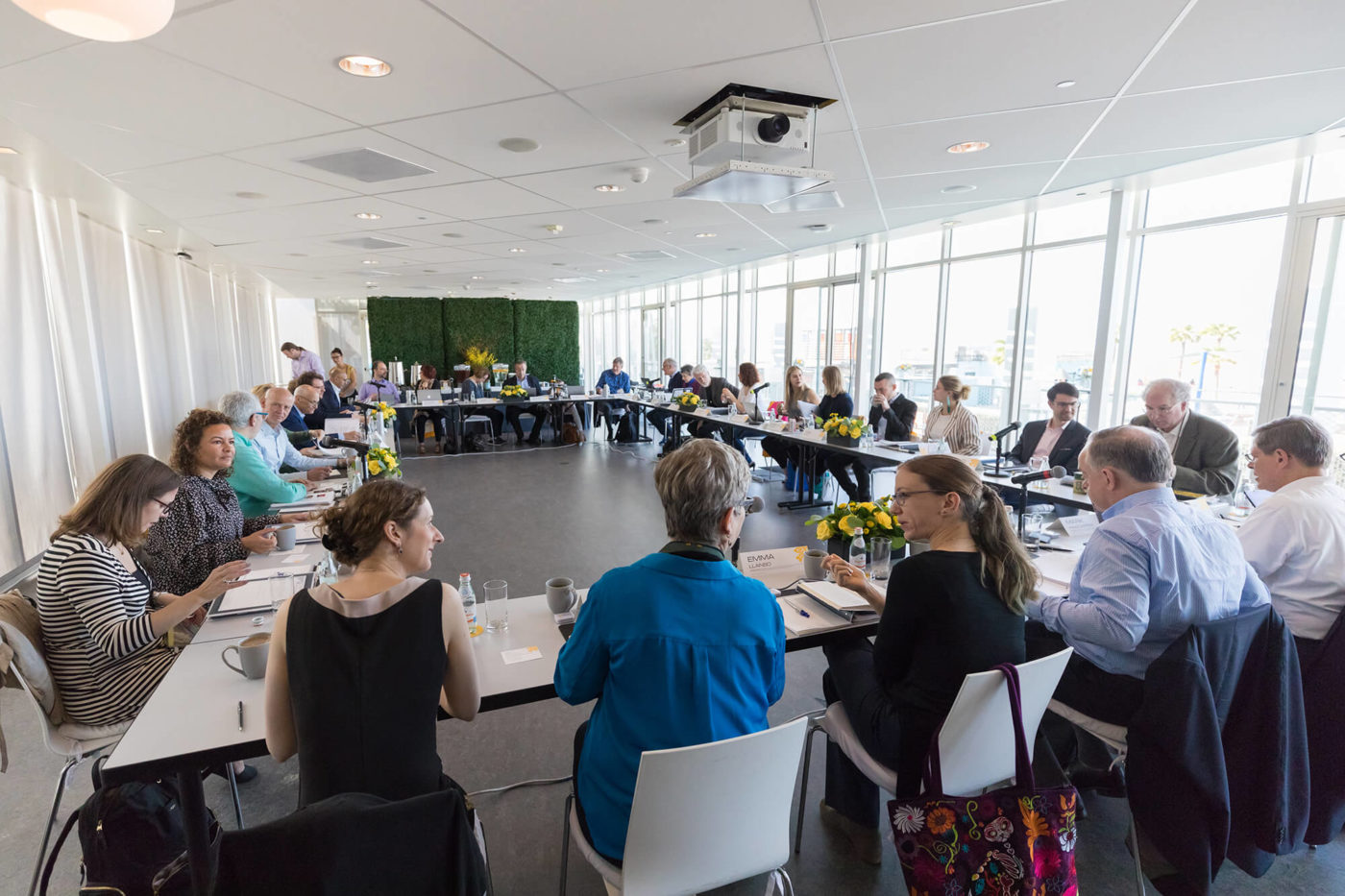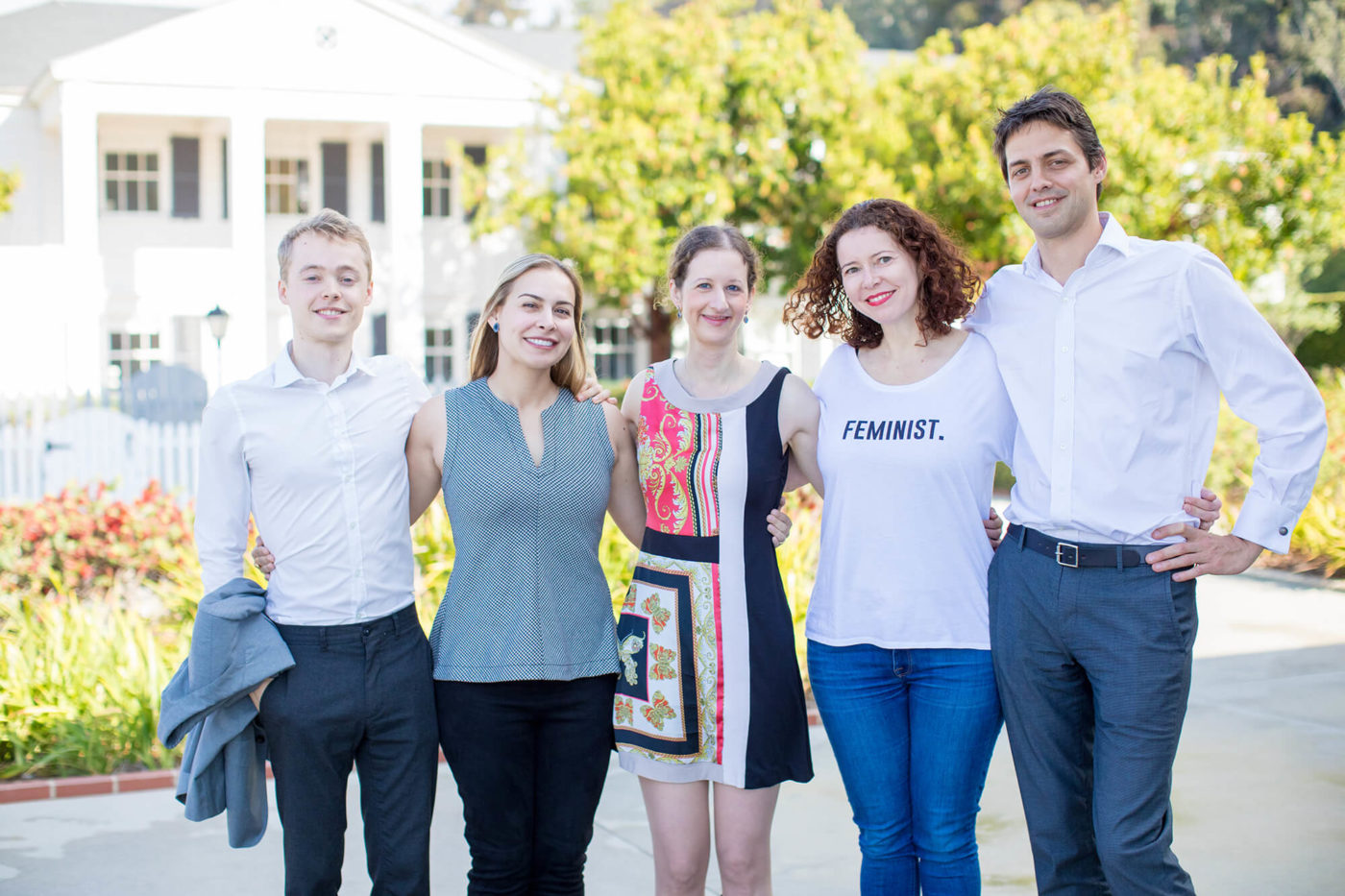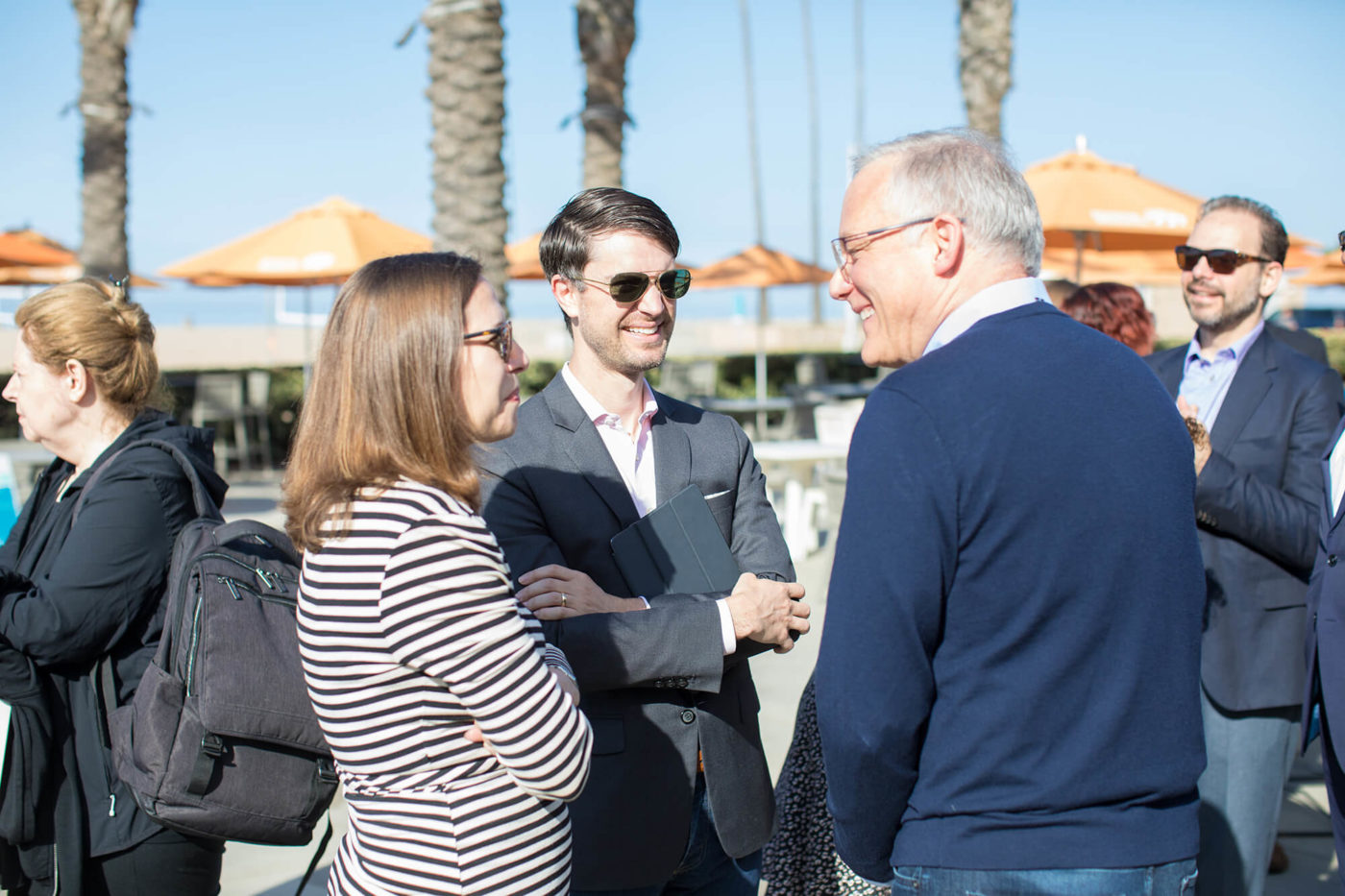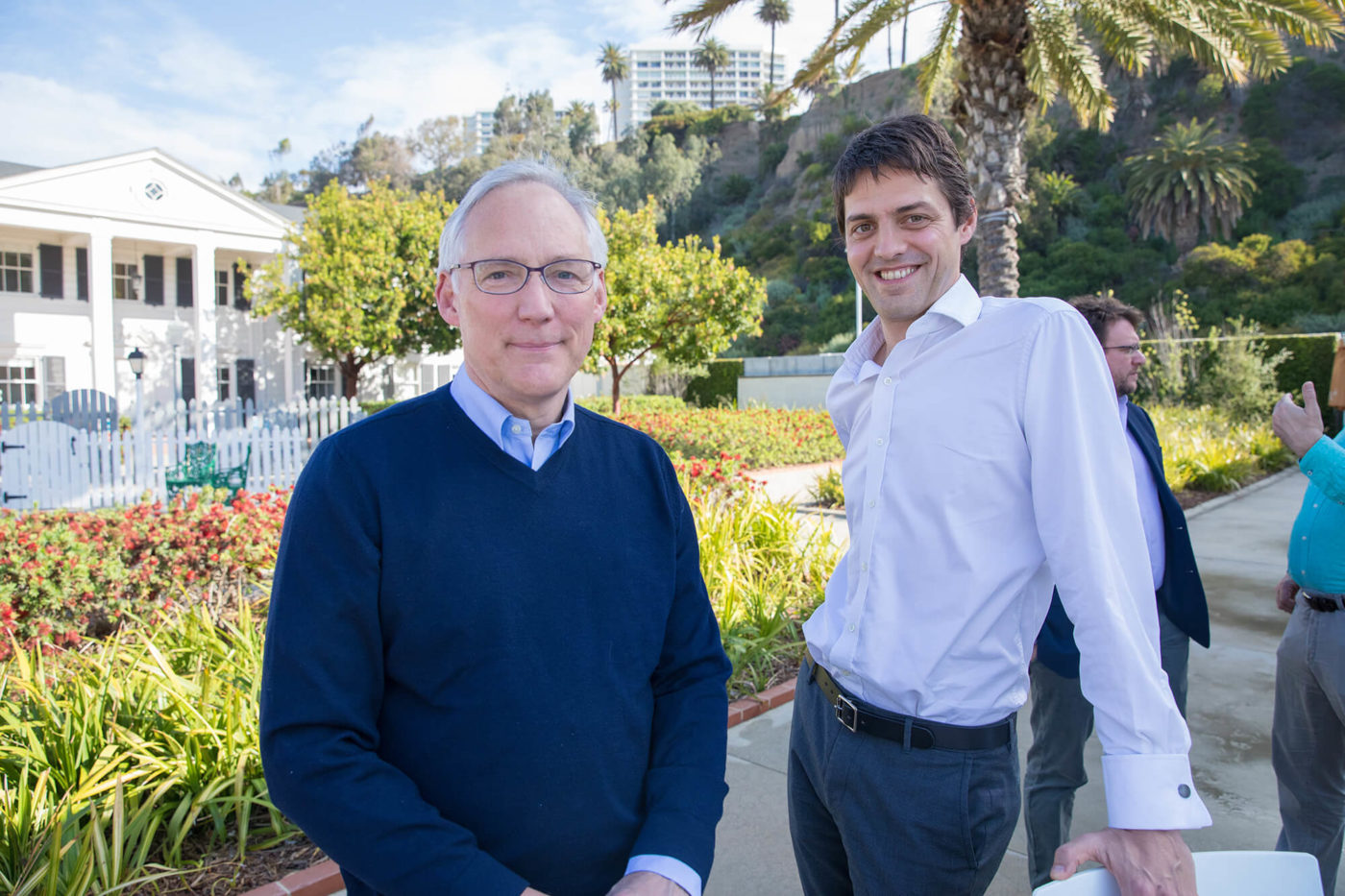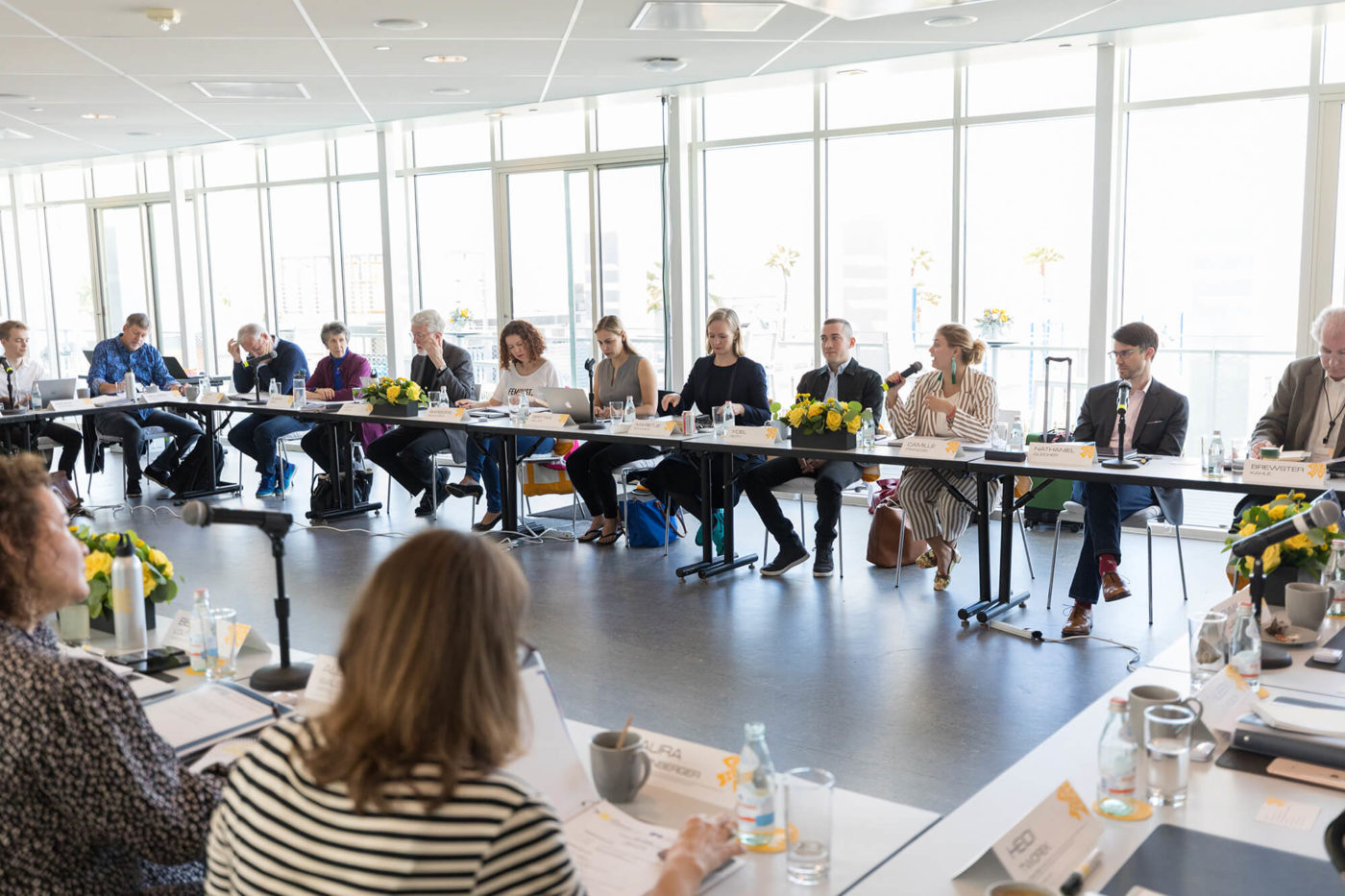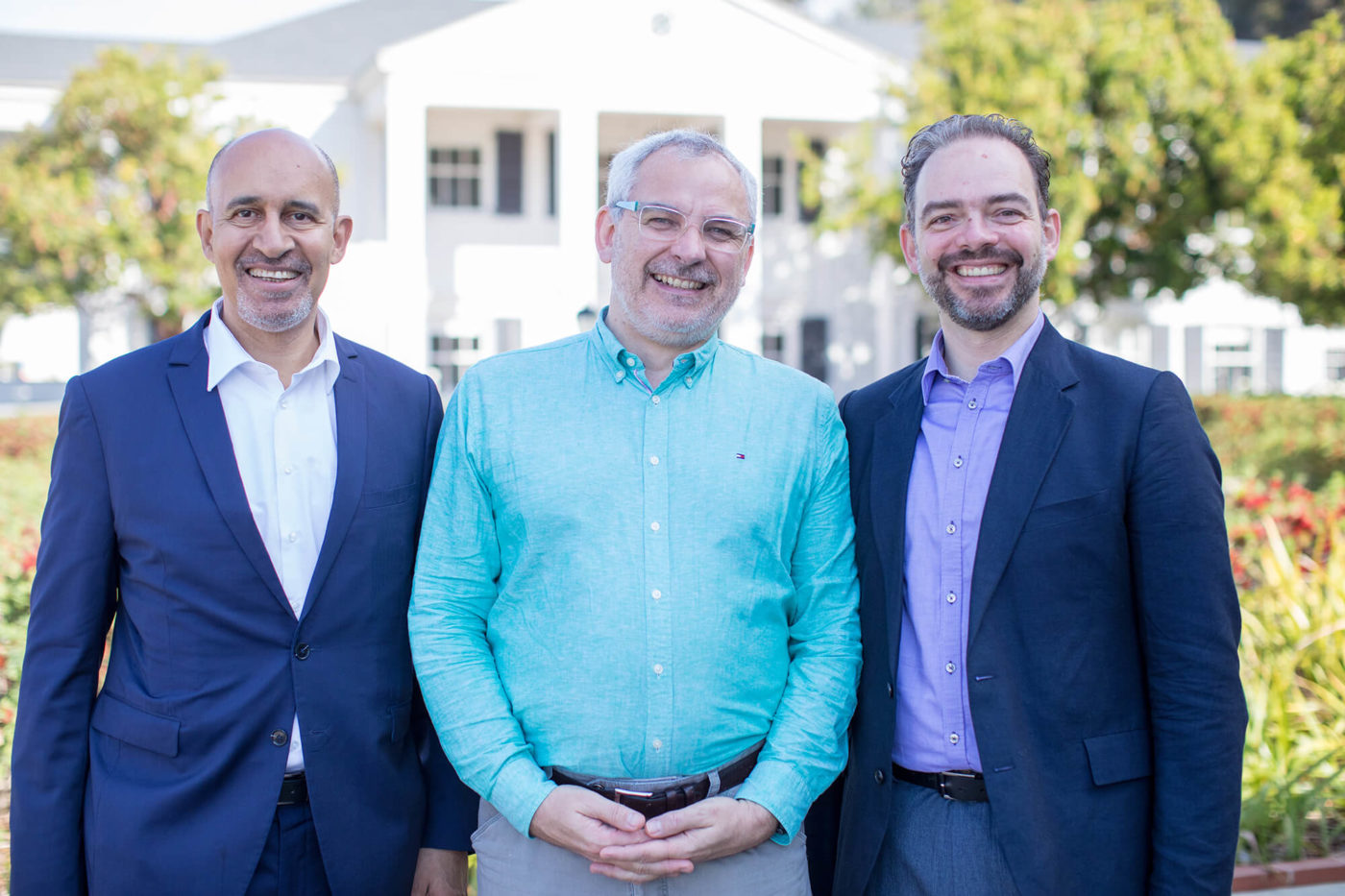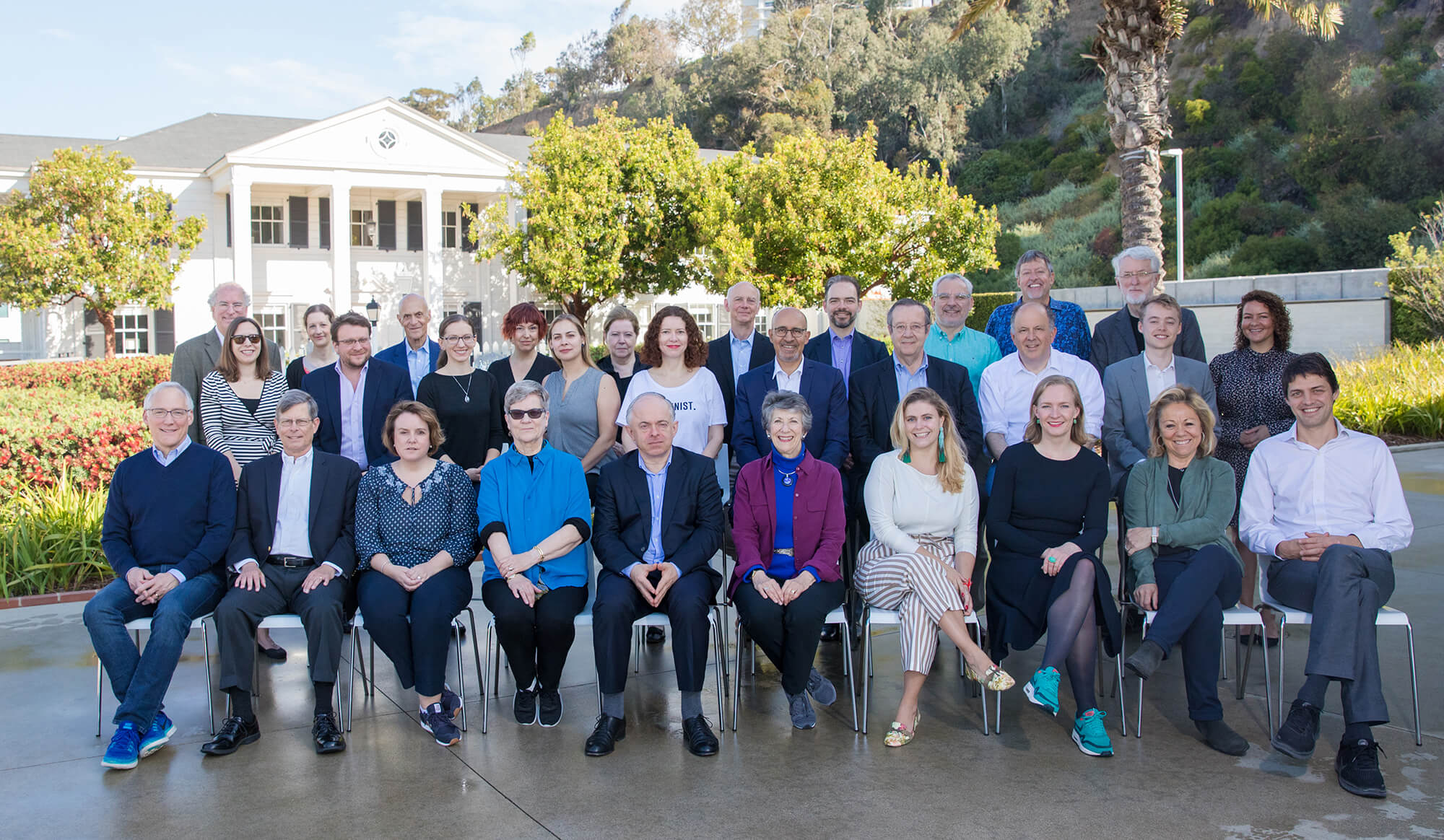
The Transatlantic Working Group discussed ways that governments and digital platforms handle viral deception, or online disinformation, at a spring meeting in Santa Monica, Calif. The session, jointly sponsored by the Annenberg Public Policy Center (APPC) and The Annenberg Foundation Trust at Sunnylands, brought together a team of international experts from May 9-12, 2019, at the Annenberg Community Beach House.
The session was the second meeting of the Transatlantic High Level Working Group on Content Moderation Online and Freedom of Expression or TWG, which seeks to reduce online hate speech, terrorist extremism, and viral deception while protecting freedom of expression. The group is co-chaired by former Federal Communications Commission member Susan Ness, an APPC distinguished fellow, and Nico van Eijk, a professor of media and telecommunications law and director of the Institute for Information Law (IViR) at the University of Amsterdam.
In California, the group discussed viral deception and the complexity of designing a framework to address unwanted online content that is not illegal. The TWG looked at emerging regulatory proposals such as the U.K. government’s “Online Harms” White Paper and a French proposal for regulating social media platforms, as well as the quasi self-regulatory model of the EU Code of Practice on Disinformation. Also under discussion were responses to online disinformation campaigns in the context of politics and national elections, how social media platforms take down disinformation, how to bring accountability to decisions made by artificial intelligence, and current political challenges to the safe harbor protections digital platforms have on both sides of the Atlantic.
The keynote speakers were APPC director Kathleen Hall Jamieson, on viral deception in the 2016 election and the role of fact checking, and Internet Archive founder Brewster Kahle, on the impact of content-moderation requirements on small online libraries such as the Internet Archive.
Read more about the group, its first meeting, its co-chairs report, and a series of working papers on how attempts at content moderation have fallen short.
Photos this page: Jason Abraham.
The TWG is a project of the Annenberg Public Policy Center, in partnership with the IViR and The Annenberg Foundation Trust at Sunnylands. It is also supported by the Embassy of the Kingdom of the Netherlands.
For more information, here are writings by members of the group:
- How (Not) to Regulate the Internet (Peter Pomerantsev, The American Interest, June 10, 2019)
- Regulating the Net is Regulating Us (Jeff Jarvis, Medium, May 31, 2019)
Transatlantic Working Group
TWG members at the Santa Monica session:
Michael J. Abramowitz, President, Freedom House
Barbora Bukovská, Director of Law and Policy, Article 19
Peter Chase, Senior Fellow, German Marshall Fund (Brussels)
Michael Chertoff, former Secretary, U.S. Department of Homeland Security
Damian Collins, Member of Parliament, United Kingdom; Digital, Culture, Media and Sport Committee Chair (via video conference)
Harlem Désir, OSCE Representative on Freedom of the Media
Eileen Donahoe, former U.S. Ambassador, U.N. Human Rights Council; Executive Director, Stanford Global Digital Policy Incubator
Camille François, Chief Innovation Officer, Graphika; Affiliate, Harvard’s Berkman Klein Center for Internet & Society; Mozilla Fellow
John Frank, VP & Head of European Union office, Microsoft
Brittan Heller, Founder, Center for Digital Civil Rights; Tech and Human Rights Fellow, Carr Center for Human Rights, Harvard University
Toomas Ilves, former President of Estonia; Stanford Cyber Initiative Fellow
Kathleen Hall Jamieson, Director, Annenberg Public Policy Center and professor of communication, Annenberg School for Communication, University of Pennsylvania
Jeff Jarvis, Professor & Director, Tow-Knight Center for Entrepreneurial Journalism, City University of New York
David Kaye, U.N. Special Rapporteur for Human Rights and Freedom of Expression; Professor of Law, University of California, Irvine
Benoît Loutrel, Head of the French task force experimenting with regulation of Facebook to fight dissemination of hate speech
Erika Mann, former Member of European Parliament (Germany); Covington & Burling advisor; former Managing Director, Facebook’s Brussels office
Susan Ness, Distinguished Fellow, Annenberg Public Policy Center; Former Member, Federal Communications Commission; Distinguished Fellow, German Marshall Fund
Peter Pomerantsev, Co-Director, Arena, London School of Economics
Laura Rosenberger, Director, Alliance for Securing Democracy
Marietje Schaake, Member of European Parliament (Netherlands)
Abigail Slater, SVP, Policy and Strategy, Fox
Heidi Tworek, Assistant Professor, University of British Columbia
Nico van Eijk, Professor of Media and Telecommunications Law and Director of the Institute for Information Law (IViR), University of Amsterdam
Joris van Hoboken, Professor of Law, Vrije Universiteit Brussels
Senior advisor: Mark MacCarthy, a Senior Fellow at the Institute for Technology Law and Policy at Georgetown Law
Researcher: Paddy Leerssen, Ph.D. candidate at the Institute for Information Law (IViR)
Guests:
Madeleine de Cock Buning, Chair of the Dutch Executive Advisory Board Authority for Audio/Visual; former chair of the EC High-Level Group on Fake News and Online Disinformation (via video conference)
Nathaniel Gleicher, Head of Cybersecurity Policy, Facebook
Brewster Kahle, Founder and Digital Librarian, Internet Archive
Sasha Havlicek, Founding CEO, ISD Global
Daphne Keller, Director of Intermediate Liability, Stanford Center for Internet and Society
Emma Llansó, Director of the Center for Democracy & Technology’s Free Expression Project
Frane Maroevic, Director of the Office of the OSCE Representative on Freedom of the Media
Yoel Roth, Head of Site Integrity, Twitter
Bret Schafer, Social Media Analyst and Communications Officer, Alliance for Securing Democracy
Michael Skwarek, Consul, Online Harms, UK Consul General, San Francisco
Róbert Spanó, Judge of the European Court of Human Rights
Alexandria Walden, Global Policy Lead for Human Rights and Free Expression, Google
Richard Whitt, President, NetsEdge LLC
